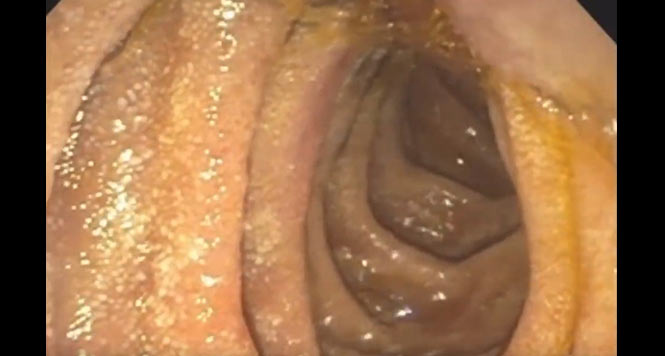Both Balloon Enteroscopy ERCP and EUS-Guided Antegrade Treatment Are Reasonable Options for Choledocholithiasis After Roux-en-Y Gastrectomy
Rajesh N. Keswani, MD, MS, reviewing Sato T, et al. Gastrointest Endosc 2023 Sep 12.
Managing choledocholithiasis in patients after Roux-en-Y gastrectomy is challenging, and with no excluded stomach, endoscopic ultrasound (EUS)-guided transmural lumen-apposing metal stent placement is significantly more difficult. Deep enteroscopy to reach the papilla is possible, but cannulation is frequently less successful. For this reason, there is interest in antegrade EUS methods to treat choledocholithiasis after gastrectomy.
This multicenter retrospective study compared balloon-assisted ERCP (BE-ERCP) and EUS-guided antegrade treatment (EUS-AG) performed in 588 and 59 patients, respectively. Enteroscopy was performed using either a single- or double-balloon endoscope. More than half of the patients had received a total gastrectomy.
Technical success was 83.7% via BE-ERCP and 83.1% via EUS-AG. Clinical success—complete removal of all stones—was greater with BE-ERCP (78.1%) than EUS-AG (67.8%), but this did not reach statistical significance. The number of sessions to achieve complete stone removal was higher for EUS-AG, but the total procedure time was longer with BE-ERCP. The overall rate of adverse events was lower with BE-ERCP (10.2% vs 18.6%; P=.08).

COMMENTAlthough the authors concluded that BE-ERCP and EUS-AG showed similar performance in the management of choledocholithiasis, the presented data would suggest that BE-ERCP may be more effective and safer than EUS-AG. Regardless, both modalities are reasonable alternatives to percutaneous biliary drainage for managing this challenging condition.
Note to readers: At the time we reviewed this paper, its publisher noted that it was not in final form and that subsequent changes might be made.
CITATION(S)
Sato T, Nakai Y, Kogure H, et al. ERCP using balloon-assisted endoscope versus EUS-guided treatment for common bile duct stones in Roux-en-Y gastrectomy. Gastrointest Endosc 2023 Sep 12. (Epub ahead of print) (https://doi.org/10.1016/j.gie.2023.09.001)


